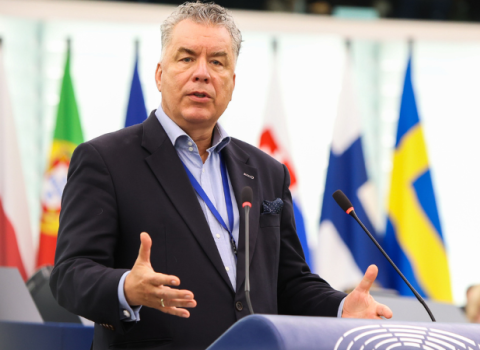Imperial College London and King's College London are set to join the partners behind the world-leading medical research institute: the UK Centre for Medical Research and Innovation (UKCMRI). UKCMRI's goal is to understand how living things work and to use that knowledge for the benefit of humanity.
It will find ways to prevent and treat diseases affecting people today – including cancers, heart disease and stroke, infectious diseases including influenza, tuberculosis and malaria, disorders of the immune system, and neurodegeneration. The pioneering laboratories will become a world class facility for medical research with 1,500 staff, strengthening the UK's reputation as a centre for excellence for medical science and helping to maintain the country's competitiveness in science and healthcare.
The institute is being built within the exceptional cluster of biomedical research already carried out in London. It will bring together biologists, chemists, physicists, engineers, computer scientists and mathematicians with some of the UK's leading hospitals to focus in new ways on understanding the underlying causes of health and disease. UKCMRI’s neighbours include the British Library and St Pancras International at Somers Town in north London.
Imperial and King's have each signed a Memorandum of Understanding expressing their intent to join the existing partners which include four of the world’s leading medical research organisations: the Medical Research Council, Cancer Research UK, the Wellcome Trust and UCL (University College London). Imperial and King's would each contribute £40 million to the development of the new institute to match the contribution from the founding academic partner UCL.
Researchers from the academic partners will work with scientists from two of the founders' research institutes, the MRC National Institute for Medical Research (NIMR) and the Cancer Research UK London Research Institute (LRI) who have been deeply involved in designing the new laboratories.
The additional funding will enable UKCMRI to do even more, more quickly than would otherwise have been the case. The costs of construction have not changed.
Sir Paul Nurse, the Director and Chief Executive of UKCMRI, said the addition of two more London Russell Group universities would add enormous value: "The involvement of Imperial and King's in the UKCMRI partnership offers the institute even greater scale and breadth of knowledge. It helps to enhance the opportunities for connections, creativity and discovery. This institute will not only carry outSir David Cooksey, chairman of UKCMRI added: "The UK is home to some of the world's best scientists. Our existing and new partners' record of achievement is extraordinary; they have nurtured and supported some of the most important discoveries in medicine and steered them into practical use. The addition of Imperial and King's will broaden the interdisciplinary capability of the partnership which presents an unmatched opportunity to tackle some of the most intractable research questions, bring patient benefit and induce great benefits to the UK's economy. Their desire to join the UKCMRI partnership is great news."
Professor Malcolm Grant, UCL President and Provost, said: "We warmly welcome Imperial and King's to the fold and regard this as a valuable development. As the founding academic partner we have worked hard in developing UKCMRI from the outset, and we are keen now to widen academic participation to make the most of the huge investment of time, ideas and money that we and our partners have already committed to it. Scientific collaboration across a broad base will be essential to the mission and purpose of UKCMRI and the involvement of other universities is truly welcome. We look forward to developing a strong operational partnership as the underpinning to a truly national institute."
Professor Sir Keith O'Nions, Rector of Imperial College London, said: "We are extremely pleased to be embarking on this new venture, which provides an unparalleled opportunity to advance British research into life sciences and biomedicine under the expert scientific guidance of Sir Paul Nurse.
"Imperial has a long and excellent record of translating world-leading medical research into new treatments and therapies. At UKCMRI, we hope that our expertise in physical sciences and bioengineering will help uncover more about the biological causes of good health and ill health, with the ultimate aim of improving everyone’s wellbeing and preventing disease.
"Alongside the improvements in health that we hope UKCMRI will help bring about, we are also enthusiastic about the research hub's potential to generate wealth for the UK. We know that research and innovation contributes hugely to the country's finances and in difficult economic times, it is more important than ever that institutions like ours work together to boost the productivity of UK PLC."
Professor Sir Richard Trainor, Principal of King's College London said: “King's is delighted to have reached this milestone in negotiating its participation in UKCMRI. Having such a strong pool of experts working collaboratively under one roof in this world-leading facility for medical research and innovation has the potential to deliver real advances in science and health research. This very much chimes with King's mission of serving society on a global level.
"In pursuit of this broad objective King's can bring to bear its biomedical and other health science expertise, its emphasis on using basic and applied research to generate innovations at the bedside and its use of psychological, psychiatric and social scientific skills to improve the well-being as well as the physical health of patients."





 A unique international forum for public research organisations and companies to connect their external engagement with strategic interests around their R&D system.
A unique international forum for public research organisations and companies to connect their external engagement with strategic interests around their R&D system.